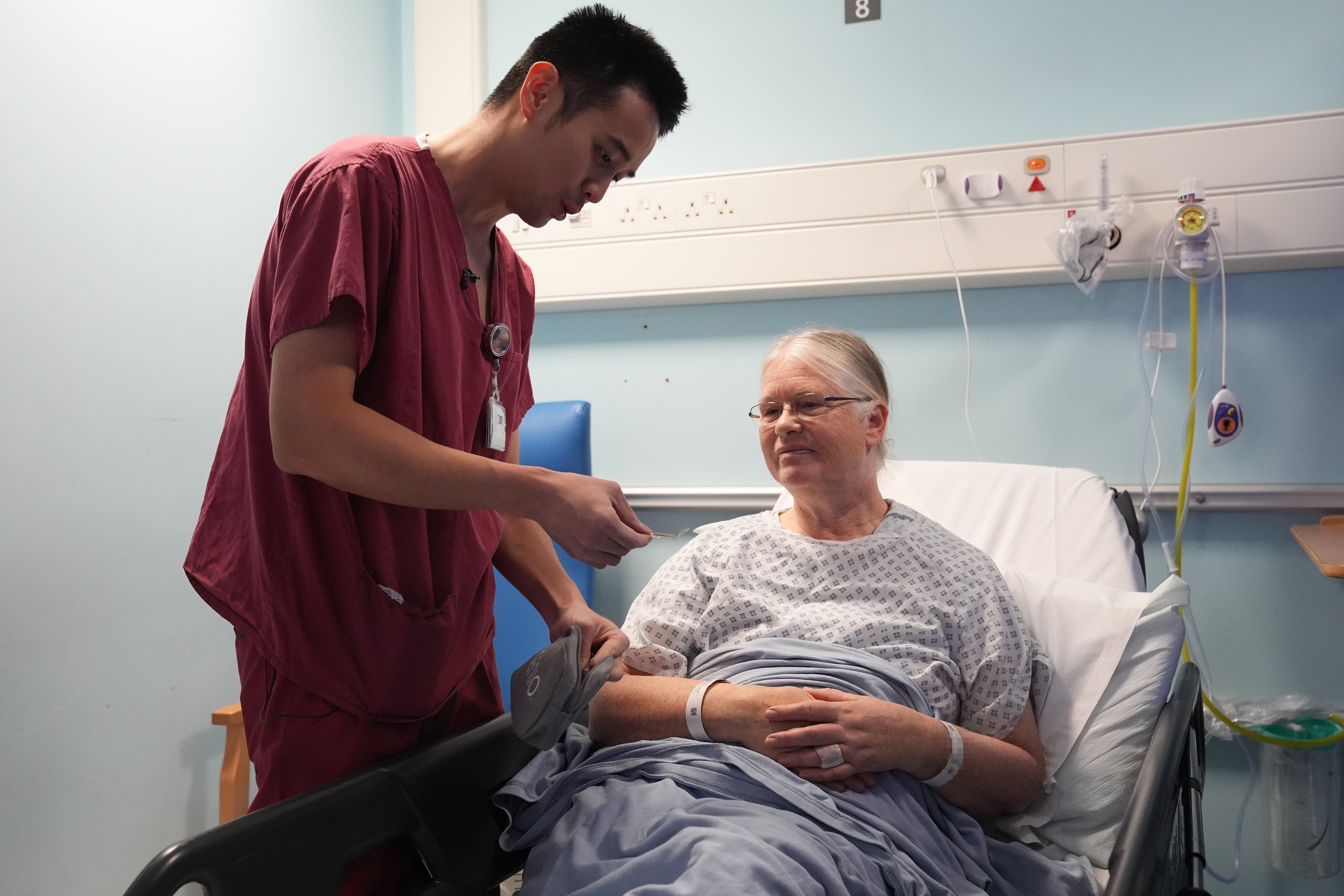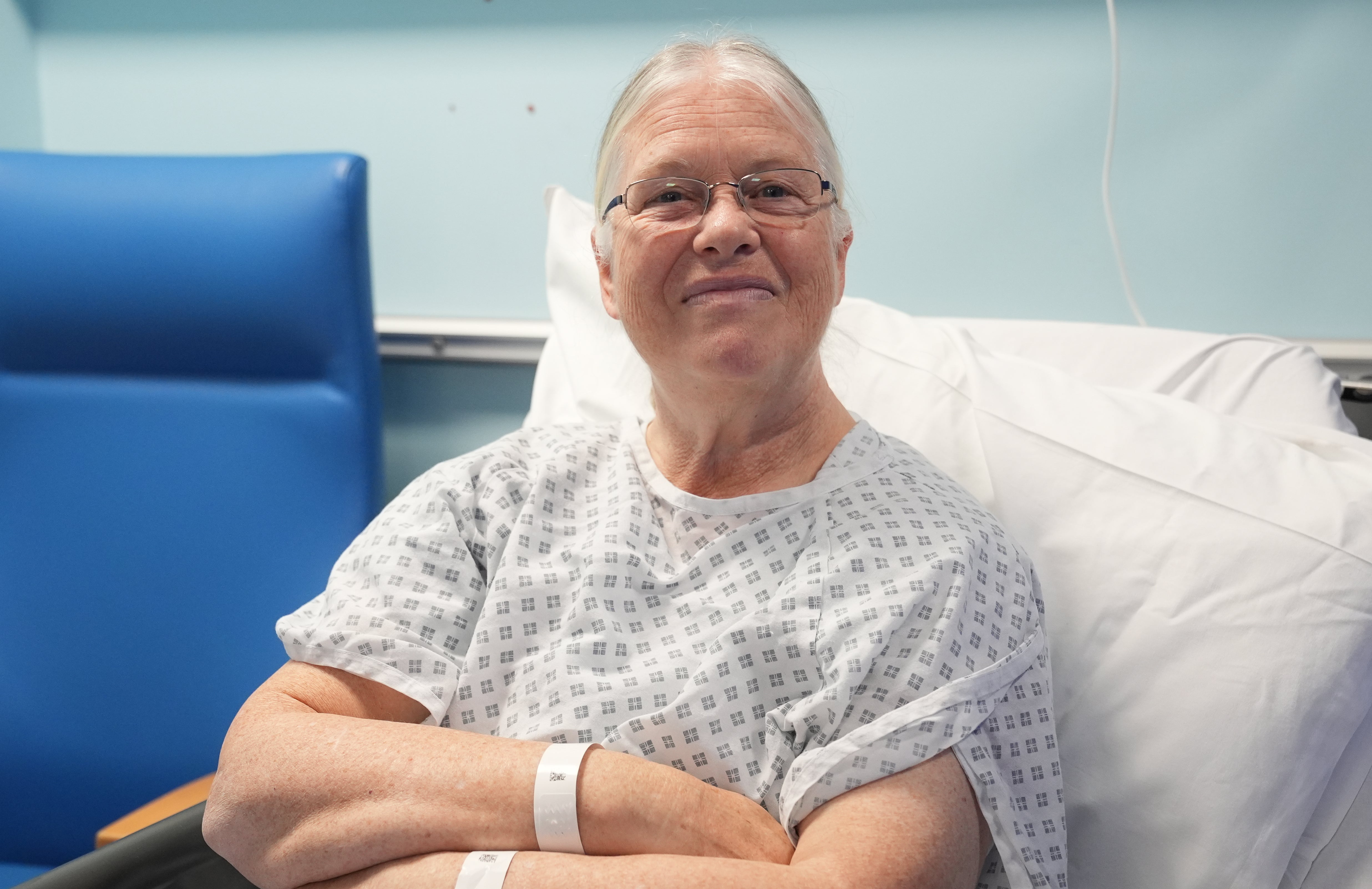
A new electronic chip that zaps the tongue’s nerves could relieve millions of patients with a common disorder that stops them from breathing in their sleep.
The technology has the potential to eliminate the need for uncomfortable machinery that some people rely on to sleep.
Around eight million people across the UK are affected by sleep apnoea, a condition that causes breathing to periodically stop while you sleep.
The most common type, obstructive sleep apnoea, is marked by choking sounds, loud snoring, and waking frequently. It occurs when the walls of the throat relax and widen or close.
The three-hour procedure to fit the Genio Nyxoah implant was carried out by medics at University College London Hospitals NHS Foundation Trust (UCLH) earlier this month.
One of the two patients, Natalie Boller, 63, was feeling better within days and will return to the clinic to have the device activated in the coming weeks. She said she is looking forward to being more active, something her tiredness has prevented.
It comes as UCLH became the first centre in the UK to offer sleep apnoea patients a choice of nerve stimulators – the Genio Nyxoah or the Inspire implant.

Both devices stimulate the hypoglossal nerve, which controls the muscles in the tongue, and can be an alternative to continuous positive airway pressure (Cpap) machines.
Cpap machines are the first line of treatment for sleep apnoea and involve patients wearing a mask that blows pressurised air into the nose and throat while they sleep. However, it can be uncomfortable.
During Mrs Boiler’s operation to insert the implant, surgeons made a 6cm incision below her chin and used a microscope to pinpoint the nerves that make the tongue protrude.
The stimulator is controlled by an external chip that is stuck to the chin using an adhesive patch before the patient goes to sleep.
During the day, the patch can be removed and the chip recharged, while patients are able to adjust the level of stimulation and monitor their sleep on a smartphone app.
Mrs Boller, a mother of six from East Sussex, has suffered from sleep apnoea for a decade and told PA she has tried “everything” to alleviate her symptoms, including a Cpap machine.
“I tried it for a whole year but I just found it impossible to get comfortable,” she said.
“I’ve had sleep apnoea for 10 years now and everything I’ve tried has failed. I was very hopeful about the surgery.”

After the operation, Mrs Boller recovered at home and despite some tiredness, felt better within a few days.
Mrs Boller will meet with doctors to have the implant activated in the coming weeks and said she is looking forward to being more active, including hiking, cycling and looking after her two grandchildren.
Patients eligible for the implants must have moderate to very severe sleep apnoea, a body mass index of below 35, and must have tried using a Cpap machine.
Consultant ENT and sleep surgeon, Ryan Chin Taw Cheong, said: “I’m very optimistic about the way things are moving, and I’m hoping that we will be able to make this technology and make this implant more available for the right patients.”







